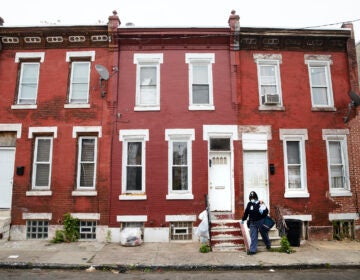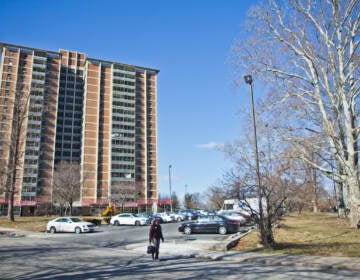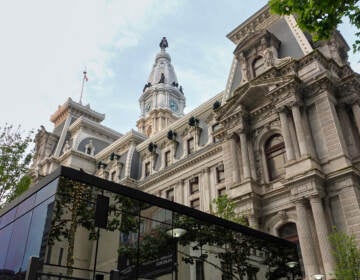‘This is momentous’: Philly to guarantee lawyers for some renters facing eviction
Under a new right-to-counsel program, hundreds of Philadelphia renters will soon be guaranteed free legal representation if their landlord files for eviction.
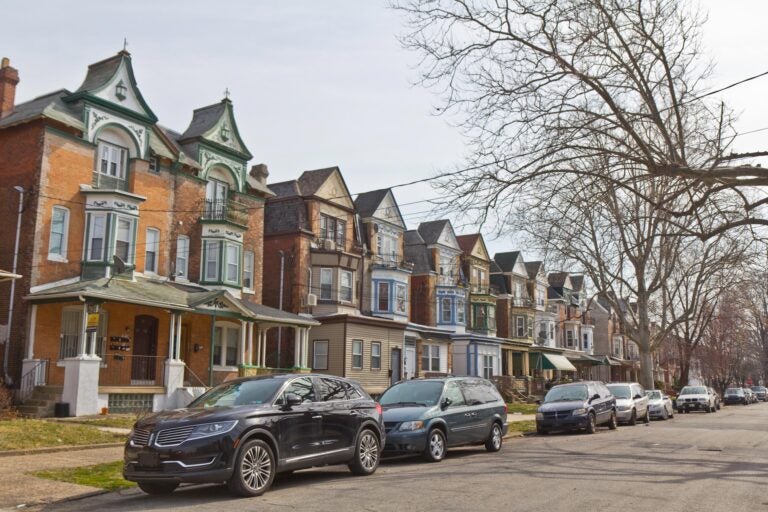
Homes on North 50th Street in West Philadelphia. (Kimberly Paynter/WHYY)
Starting Tuesday, hundreds of Philadelphia renters will be guaranteed free legal representation if their landlord files for eviction.
Going into effect six months after the end of a federal ban on lockouts, at a time when many still wrestle with the fallout of pandemic-fueled financial woes, the new right-to-counsel program aims to help low-income residents remain in their homes, and help others leave under better terms if their cases end with them having to move out (for example, getting their security deposits back).
Even before the pandemic, Philadelphia ranked fourth in the nation among large U.S cities for evictions, averaging 20,000 a year, with only a small fraction of those facing eviction showing up to court with a lawyer.
“This is momentous,” Rachel Garland, managing attorney of the housing unit at Community Legal Services, said of the program, part of a package of pro-renter legislation.
“We know that when tenants go to court without an attorney, they are more likely to sign agreements that they can’t necessarily keep because they don’t know that they have the option to negotiate a better agreement,” Garland said. “We know that the outcomes, if they try the case in front of a judge, are not as good because they’re not attorneys. They don’t necessarily know what legal arguments to raise.”
For now, the program will only operate in two ZIP codes: 19121 in North Philadelphia and 19139 in West Philadelphia. They were selected because they each logged hundreds more evictions than the average ZIP code in 2018 and 2019 and have family poverty rates that are nearly double the citywide ZIP code average, according to a report published by the Reinvestment Fund in conjunction with the city.
If they meet the program’s income requirements, residents from those sections of the city will be guaranteed a free lawyer if the dispute with their landlord cannot be resolved before becoming the subject of an eviction filing. Landlords are now required to participate in mediation through the city’s Eviction Diversion Program before they can file against their tenant for any reason, including unpaid rent.
Under the program, a single person’s annual gross income can’t exceed $24,980. The limit for a family of four is $51,500.
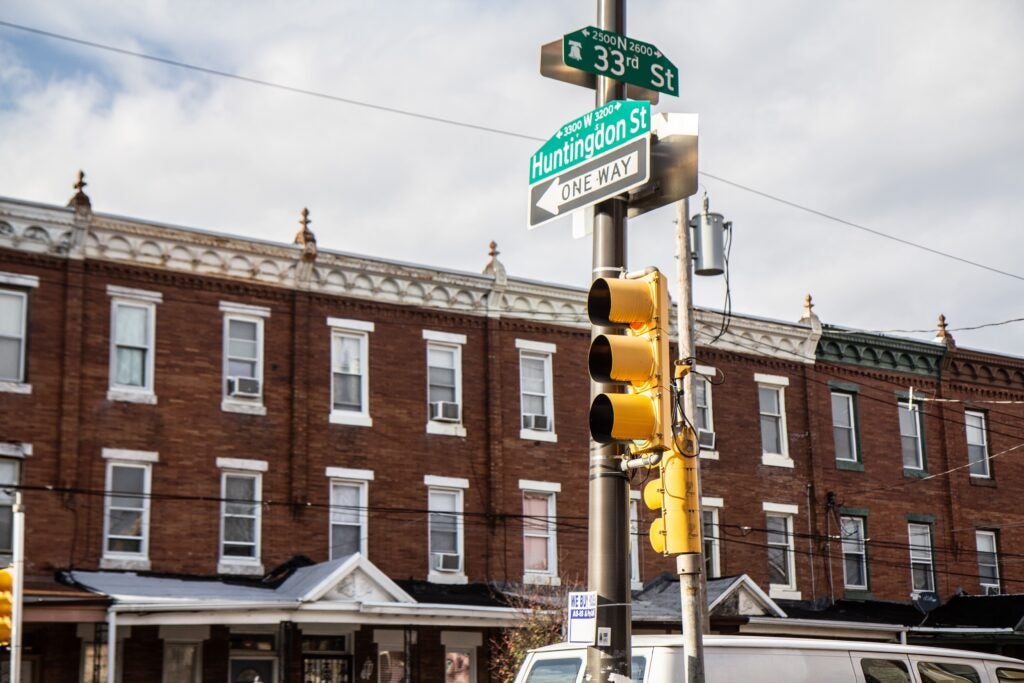
A lawyer helped her stay in her home
Renee Orgill is one of thousands of Philadelphians who faced the threat of eviction during the pandemic. She doesn’t know what would have happened with her eviction case if she didn’t have a lawyer in her corner to help sort things out.
“They took care of everything,” said Orgill, a grant writer who lives in West Philadelphia with her fiance and 8-year-old son.
CLS, one of four legal aid groups participating in the program, became involved shortly after the pandemic started in 2020. Orgill’s and her fiance’s hours were cut after their jobs went virtual, causing them to fall behind on rent. They soon owed roughly $2,000, just over three months’ worth of partial payments.
Her landlord filed for an eviction.
Luckily, the city’s eviction moratorium took effect not long afterward. But the couple still needed to make an arrangement with their landlord to pay off the back rent they owed. Lawyers with CLS took care of it, enabling them to make their landlord whole without having to move or have an eviction on their record, something that often hampers people’s chances of being selected as renters for a new apartment.
“It was the greatest help that I’ve ever received because it helped me get back on my feet. I manage my money better, to save more to be able to pay the rent,” said Orgill, who had never had a landlord file for an eviction.
She was also able to remain in the apartment.
Greg Wertman, president of HAPCO Philadelphia, which represents many of the city’s small and midsize landlords, said he doesn’t take issue with the program, saying the organization is also interested in having a “level playing field” when it comes to eviction filings.
The program is funded at its current level as part of the Kenney administration’s five-year plan ending in fiscal year 2025. Its budget for the five months, until the beginning of FY23 in July, is $650,000.
It’s unclear if it will be funded any further, though supporters hope so. A recent study commissioned by the Philadelphia Bar Association found that every dollar invested in tenant representation would save the city nearly $13.
“There are costs in terms of homeless services, in terms of public health, in terms of behavioral health and, frankly, health care costs,” said Eva Gladstein, deputy managing director of health and human services.
Gladstein and others hope the program will become citywide sooner than later.
City Councilmember Helen Gym, who introduced the bill behind the program, said the initiative should not be thought of as a pilot.
“A pilot to me implies you don’t know whether something works, and here what we are trying to do is to concentrate what we know is working in a place that really needs it the most or experiences eviction among the hardest in the city and then continue to broaden out from there and continue to build the resources,” said Gym.
 WHYY is one of over 20 news organizations producing Broke in Philly, a collaborative reporting project on solutions to poverty and the city’s push towards economic justice. Follow us at @BrokeInPhilly.
WHYY is one of over 20 news organizations producing Broke in Philly, a collaborative reporting project on solutions to poverty and the city’s push towards economic justice. Follow us at @BrokeInPhilly.

Subscribe to PlanPhilly
WHYY is your source for fact-based, in-depth journalism and information. As a nonprofit organization, we rely on financial support from readers like you. Please give today.




